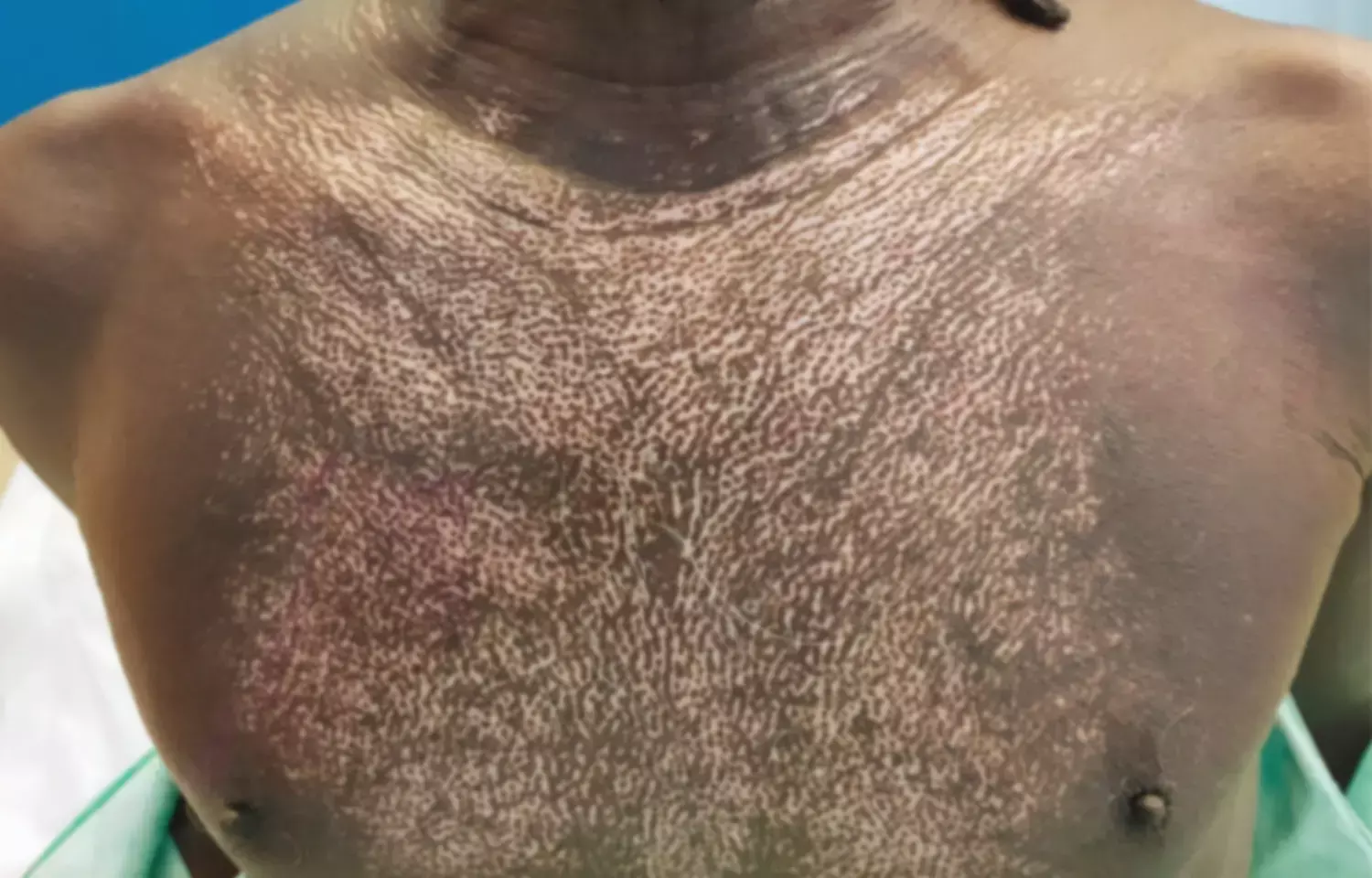- Home
- Medical news & Guidelines
- Anesthesiology
- Cardiology and CTVS
- Critical Care
- Dentistry
- Dermatology
- Diabetes and Endocrinology
- ENT
- Gastroenterology
- Medicine
- Nephrology
- Neurology
- Obstretics-Gynaecology
- Oncology
- Ophthalmology
- Orthopaedics
- Pediatrics-Neonatology
- Psychiatry
- Pulmonology
- Radiology
- Surgery
- Urology
- Laboratory Medicine
- Diet
- Nursing
- Paramedical
- Physiotherapy
- Health news
- Fact Check
- Bone Health Fact Check
- Brain Health Fact Check
- Cancer Related Fact Check
- Child Care Fact Check
- Dental and oral health fact check
- Diabetes and metabolic health fact check
- Diet and Nutrition Fact Check
- Eye and ENT Care Fact Check
- Fitness fact check
- Gut health fact check
- Heart health fact check
- Kidney health fact check
- Medical education fact check
- Men's health fact check
- Respiratory fact check
- Skin and hair care fact check
- Vaccine and Immunization fact check
- Women's health fact check
- AYUSH
- State News
- Andaman and Nicobar Islands
- Andhra Pradesh
- Arunachal Pradesh
- Assam
- Bihar
- Chandigarh
- Chattisgarh
- Dadra and Nagar Haveli
- Daman and Diu
- Delhi
- Goa
- Gujarat
- Haryana
- Himachal Pradesh
- Jammu & Kashmir
- Jharkhand
- Karnataka
- Kerala
- Ladakh
- Lakshadweep
- Madhya Pradesh
- Maharashtra
- Manipur
- Meghalaya
- Mizoram
- Nagaland
- Odisha
- Puducherry
- Punjab
- Rajasthan
- Sikkim
- Tamil Nadu
- Telangana
- Tripura
- Uttar Pradesh
- Uttrakhand
- West Bengal
- Medical Education
- Industry
Salt-and-Pepper Skin Changes in Systemic Sclerosis: NEJM case report

Source NEJM
Dr Matthew Colquhoun, and Dr Henry Penn at Northwick Park Hospital, Harrow, United Kingdom have reported a case of Systemic sclerosis presenting with salt and pepper skin. The case has been published in the New England Journal of Medicine.
Systemic sclerosis (SSc) is a connective tissue disease in which skin and internal organ fibrosis are associated with an obliterative micro-vasculopathy and a degree of inflammation.
It involves multiple systems and it takes one to three years from the appearance of the first signs and symptoms before the patients receive a diagnosis. The signs and symptoms of systemic sclerosis can be mistaken for any number of diseases, depending on the predominant symptom at the time of examination. Early detection is extremely important as it provides the opportunity to manage the disease process before damage and fibrosis lead to organ failure and poor outcomes.
A salt-and-pepper appearance of the skin is one of the earliest cutaneous findings in systemic sclerosis. and is a vitiligo-like skin manifestation characterized by a coexistence of hyperpigmentation and hypopigmentation. Occasionally, it may be the sole cutaneous manifestation.Previous reports showed about 94% of the patients who were diagnosed with SSc had a salt-and-pepper appearance.
According to the history, a 68-year-old man presented to the rheumatology clinic with a 5-year history of skin changes on his chest and back. He was a current smoker and had been hospitalized 3 months earlier because of shortness of breath. Evaluation at that time had included computed tomography of the chest, which revealed findings consistent with fibrotic and emphysematous changes in the lower lobes of both lungs, as well as transthoracic echocardiography, which was notable for an elevated pulmonary artery systolic pressure.
At the current visit, physical examination showed clubbing of the fingers; crackles in both lung bases; "salt-and-pepper" skin changes on the chest and back, characterized by hypopigmentation and hyperpigmentation in areas of sclerotic skin; and diffuse skin thickening that extended down each arm to a point proximal to the elbows. Testing for antitopoisomerase I (anti–Scl-70) antibodies was positive. A diagnosis of diffuse cutaneous systemic sclerosis was made. Immunosuppressive therapy was initiated; 3 months later, partial regression of the skin thickening and salt-and-pepper changes was noted, and the patient reported less shortness of breath.
For further reference log on to:
https://www.nejm.org/doi/full/10.1056/NEJMicm2103390
Dr Kamal Kant Kohli-MBBS, DTCD- a chest specialist with more than 30 years of practice and a flair for writing clinical articles, Dr Kamal Kant Kohli joined Medical Dialogues as a Chief Editor of Medical News. Besides writing articles, as an editor, he proofreads and verifies all the medical content published on Medical Dialogues including those coming from journals, studies,medical conferences,guidelines etc. Email: drkohli@medicaldialogues.in. Contact no. 011-43720751


